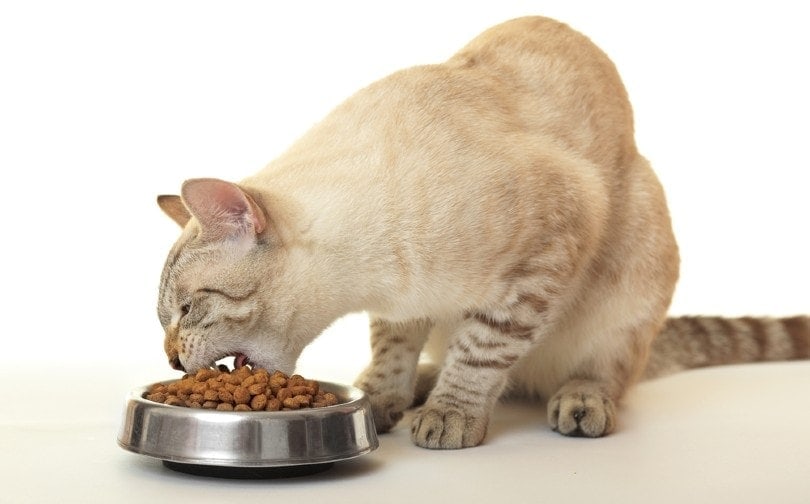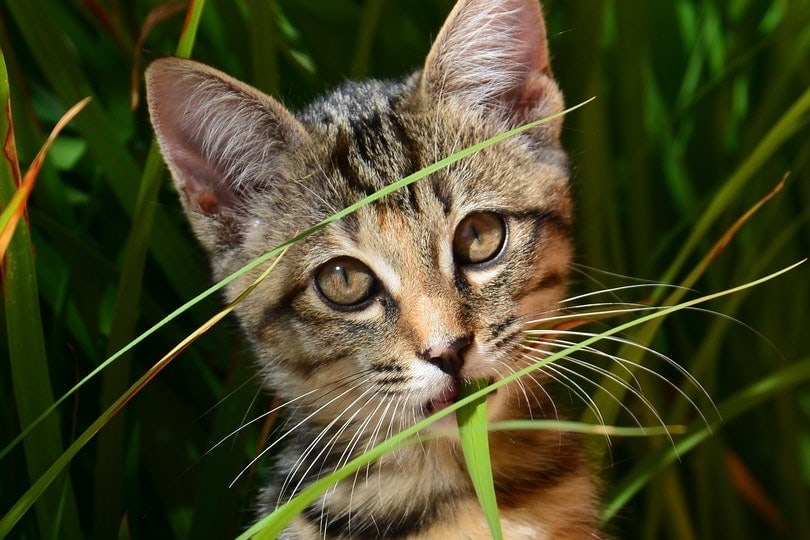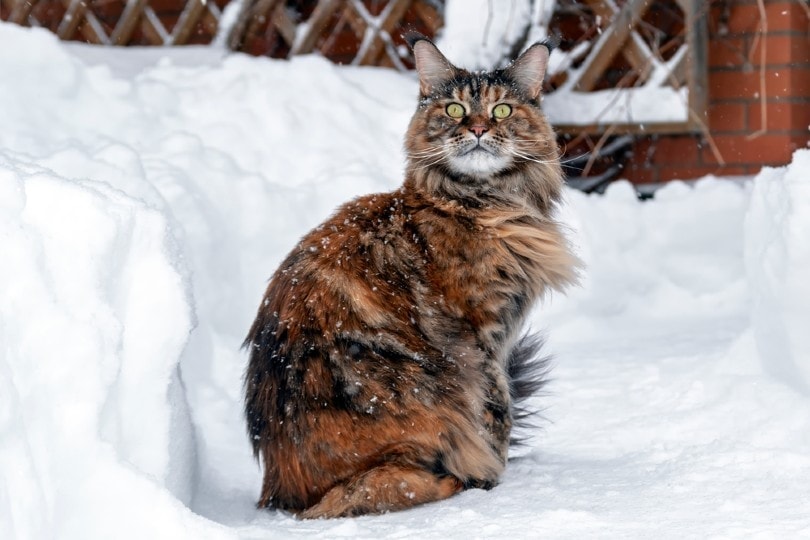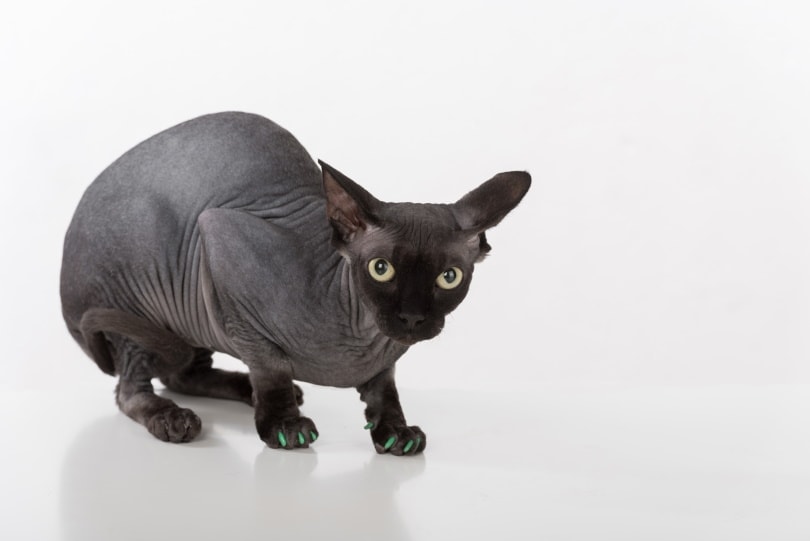Reasons Why Your Cat is Always Hungry
1. Diabetes
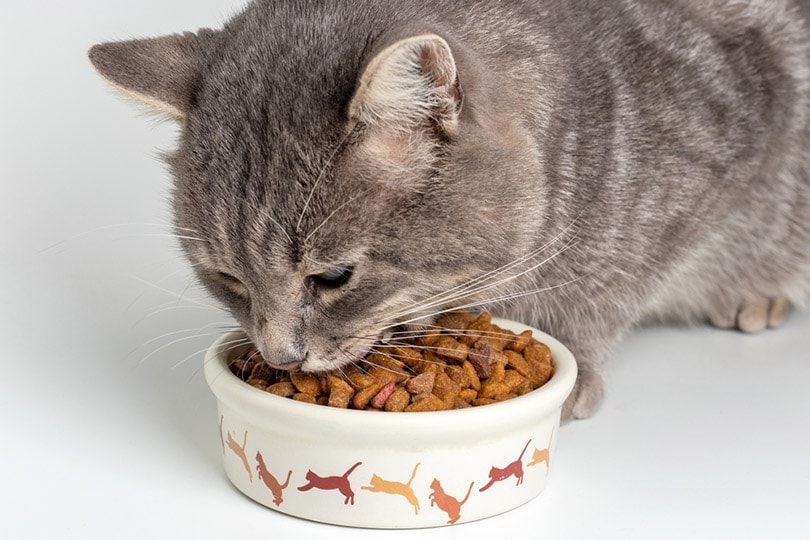
Feline diabetes is a disease that doesn’t allow cats to use dietary glucose for energy because they lack insulin. Hunger is one of the many symptoms of diabetes because their bodies can’t break down the food and turn it into energy. A diabetic cat is going to crave some extra kibble to compensate for this lack of energy. Other signs of feline diabetes include increased urination and thirst. When all three symptoms are happening together, you should schedule a trip to the vet as soon as possible.
2. Hyperthyroidism
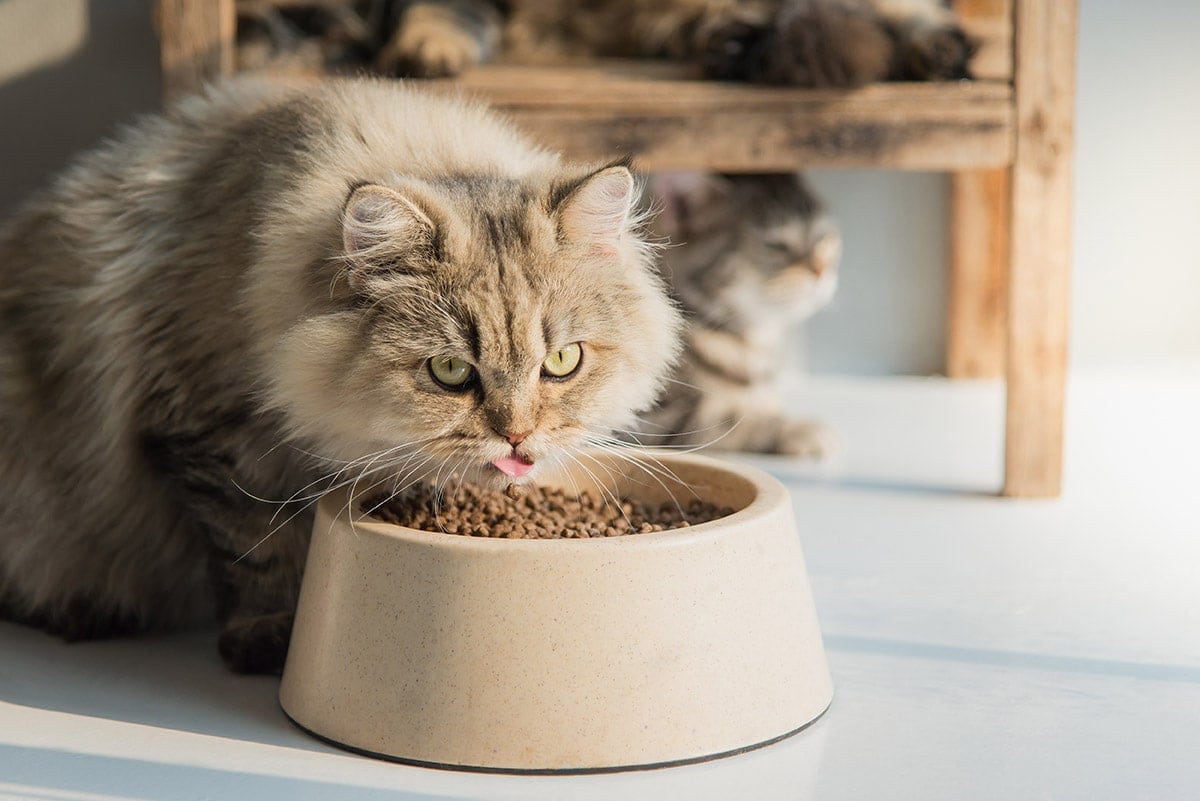
Another reason that your cat may be eating more is hyperthyroidism. This is another disease that happens when too much of a thyroid hormone is circulating in the cat’s blood. When this happens, it increases the cat’s metabolic rate and makes them feel hungrier than usual. Increased thirst and urination are often associated with hyperthyroidism. Your cat could also be vomiting or have diarrhea and a dry coat because of this.
3. Problems with Bowel Movements

It’s not uncommon for cats to eat more frequently when they are having intestinal problems. There could be inflammation or a type of disease that needs to be tested for. Most times, veterinarians will perform a medical exam and blood test to ensure that all levels are normal. There is a wide range of treatments and diseases that could be happening, so do your best not to jump to conclusions until talking with an expert.
4. Pancreatic Disease
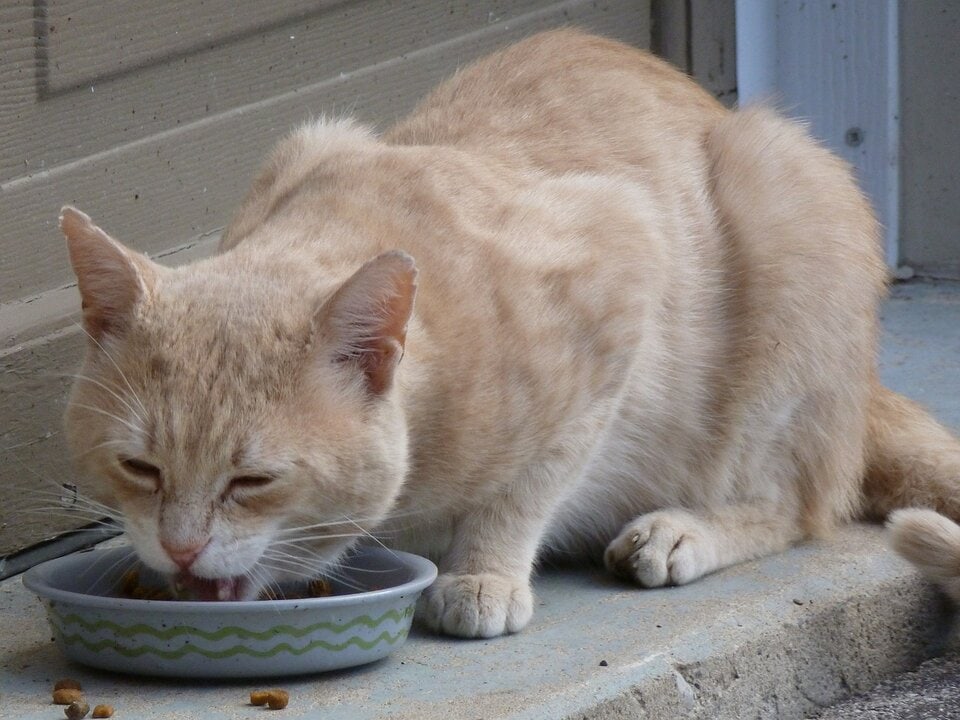
A cat’s pancreas is responsible for secreting digestive enzymes that help them digest each meal. Feline Pancreatitis happens when the pancreas no longer secretes those enzymes and results in maldigestion of food. Increased hunger is an obvious first side effect of Pancreatitis. A blood test will be ordered through your vet to determine if they are ill.
5. Old Age
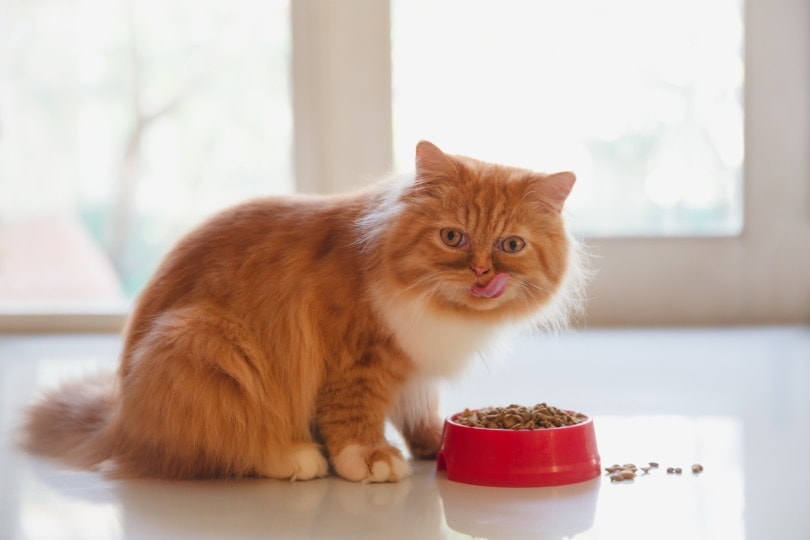
Aging comes with many new behaviors that you may not be used to. When animals age, their bodies don’t digest fats and proteins ass efficiently as their younger bodies did.
6. Parasites
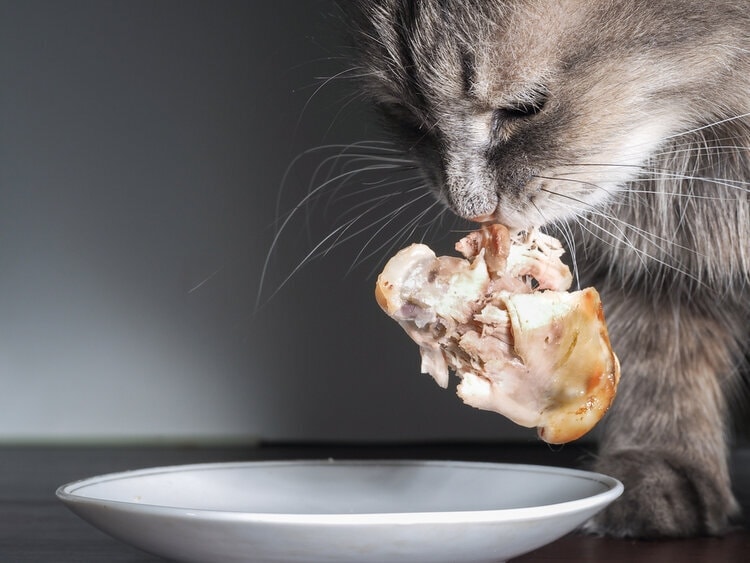
If you’ve ever heard of the dreaded tapeworm, then you know there are many different intestinal parasites that could make your cat hungry all the time. Parasites aren’t too common, but they do happen. The parasites could be competing with your cat for food and inhibiting their ability to digest the food and absorb essential nutrients. Vets will have to look at a stool sample to determine if parasites are the cause.
7. Boredom
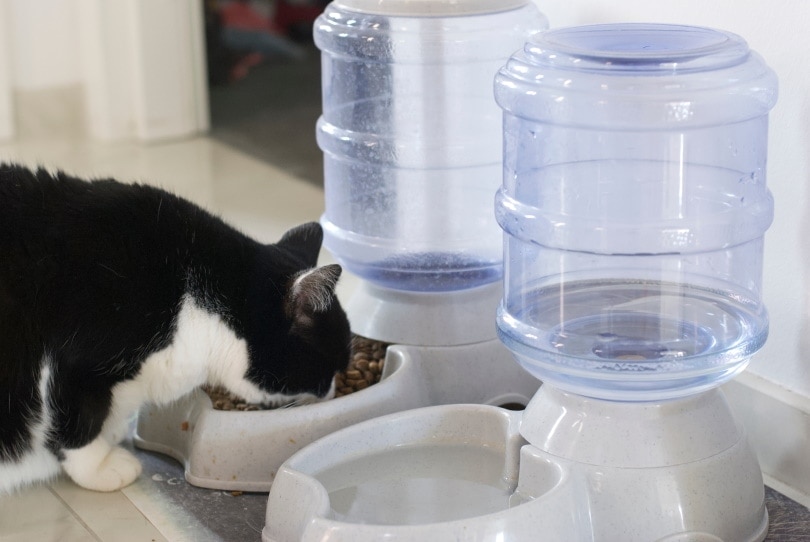
Don’t be surprised if your cat is overeating simply because they have nothing better to do. Outdoor cats spend a lot of their time hunting outdoors, but indoor cats aren’t as physically or mentally active. If they spend too much time inside, cats become lonely, bored, or depressed and might start eating more frequently because it’s an easy way to occupy their time and keep themselves stimulated.
8. Poor Food Quality
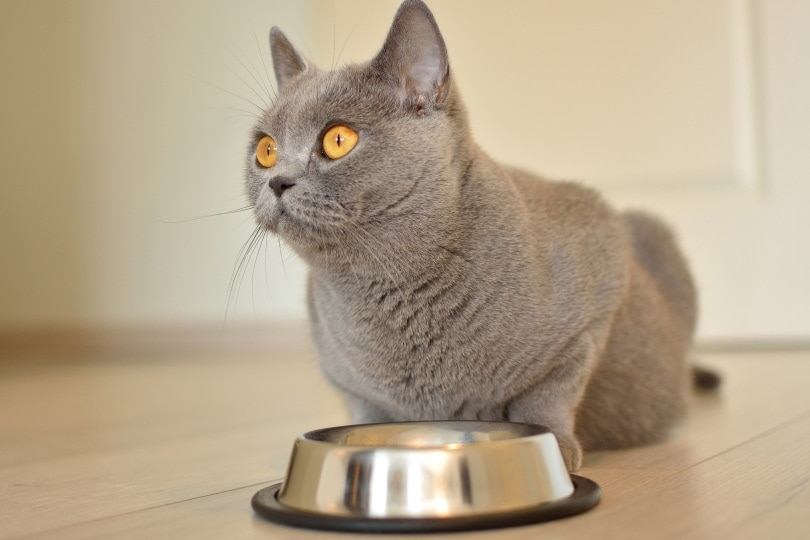
There’s a chance that you aren’t giving your cat the right amount of food or enough high-quality nutrients to keep them healthy. Cats are typically good at following their instincts and, if they don’t feel nourished, they will eat more to make up for the deficit. Consult your vet about high-quality food brands that would be better for your cat based on breed and age.

What to Do When Cats Eat All Day Long
1. Give them more food.
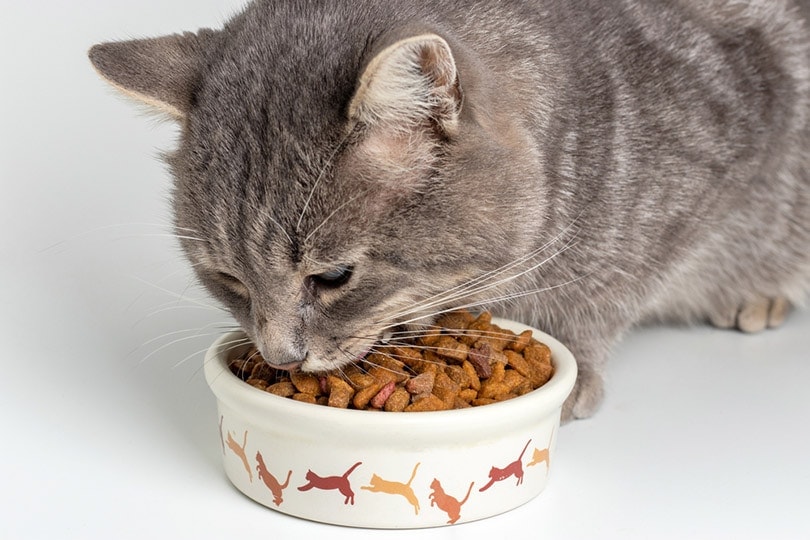
It’s possible that your cat is eating all day because they aren’t getting enough to begin with. Try giving your cat a bigger serving for breakfast and dinner to see if it makes a difference in her behavior.
2. Switch to another brand.
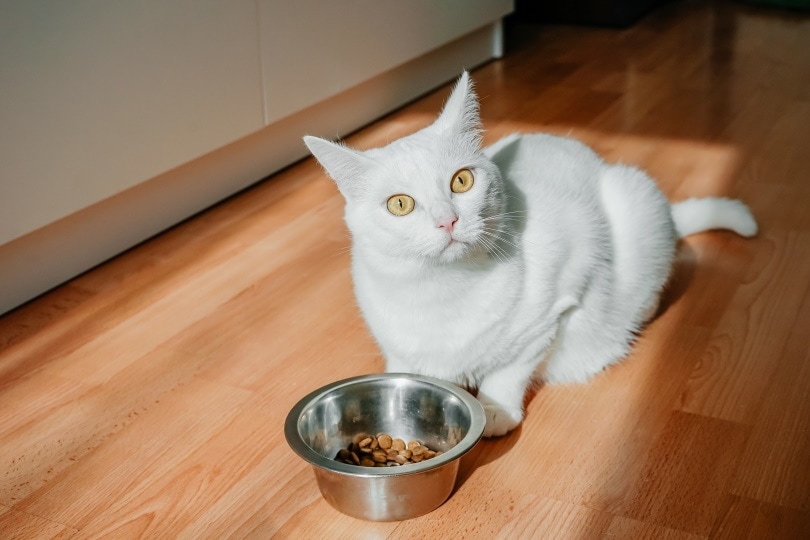
Some cats don’t get the essential protein, vitamins, and minerals they need from specific food brands. Check your brand’s nutritional elements and compare them with her daily requirements. If they don’t match, it’s time to change to a new kibble.
3. Try to free feed.
Free feeding allows your cat to have access to food at all times of the day. Some cats prefer to control their food intake on their own. If they have more food available to them, they might be able to stop when they actually feel full instead of feeling like they never have enough to eat.

Conclusion
While all pets like to sneak a few extra treats here and there, it isn’t normal for them to be eating at all hours of the day. Take any change in your cat’s behavior seriously and speak to the vet if you have any major concerns.
Featured Image Credit: yykkaa, Shutterstock
